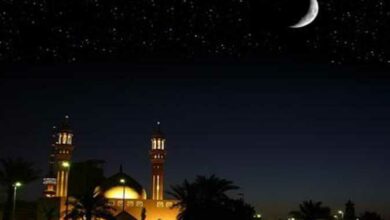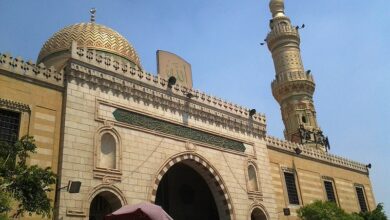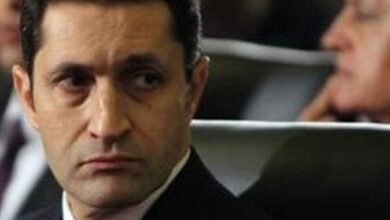Details of Ramadan TV soap operas are competing for space with that other holy month drama – the trial of Hosni Mubarak, former president – in most of Monday’s papers.
State-owned daily Al-Gomhurriya leads with the question of the moment: “Will we see Mubarak in the dock the day after tomorrow?”
It also asks if the “Abadir scenario” will be repeated. In 1986, the Cairo Criminal Court heard a bribery case involving the Industry and Foreign Trade Ministry and Adly Abadir Youssef, representative of the German Company for the Manufacture of Paper. Youssef was brought into a court on a wheelchair and, as his health deteriorated during the trial, transferred to a moveable bed.
Al-Shorouk reports that according to a medical source, Mubarak’s health is “up and down” but he can travel. A decision about whether the former president will appear in court on charges of killing protesters alongside former Interior Minister Habib al-Adly will be made at 4 am on Wednesday morning, although there is mounting media speculation that it has already been decided that he will not attend.
Al-Dostour says that Mubarak’s sons, Gamal and Alaa, will be brought to court from Tora Prison in a tank.
The decision by 26 political movements to suspend the Tahrir Square sit-in during Ramadan is given cursory treatment in the papers. In a small report on an increase in “sector strikes," Al-Shorouk reports that the clashes that broke out Sunday between downtown shop owners and protesters manning entrances to the sit-in were caused because the shop owners claim that the sit-in has bankrupted them.
Al-Ahram reveals “the secrets of the invasion of Arish,” describing the sudden appearance of 50 vehicles carrying masked, armed men bearing black flags and copies of the Quran in Horreya Square in the Sinai town of Arish.
Last Friday, several people were killed when a group stormed a police station there. Al-Ahram says they were “Salafi jihadists” from a small village between Arish and Egypt’s border with Israel called Qaree’a, which it describes as a Salafi “training camp.”
The paper quotes a political activist, Ashraf Ayoub, as saying that many members of the group had direct contact with Egypt’s security forces until the Taba bombings of 2004, when hundreds of Sinai Bedouins, including women and children, were detained by State Security Investigative Services in an arbitrary arrest campaign.
Al-Ahram says the group destroyed a statue of former President Anwar Sadat before going to the police station. It also alleges that members of the group claimed responsibility for the latest bombing of Egypt’s gas pipeline to Israel.
Writing in Al-Tahrir, the ever-irreverent Ibrahim Eissa asks what the response of the ruling Supreme Council of the Armed Forces (SCAF) to Friday’s occupation of Tahrir Square by tens of thousands of Islamists will be.
Eissa reminds readers that the protesters “were Egyptian – despite the fact that they raised the Saudi Arabian flag” and jokingly asks us to “look on the positive side: at least they didn’t raise the Serbian flag” – referring to a SCAF member's recent claim that the April 6 Youth Movement received combat training in Serbia and is funded by foreign groups.
Eissa wonders what the SCAF will do if Islamist groups win seats in the forthcoming parliamentary elections, and whether Field Marshal Hussein Tantawi “will agree to be minister of defense in a Hamas government.”
Egypt's papers:
Al-Ahram: Daily, state-run, largest distribution in Egypt
Al-Akhbar: Daily, state-run, second to Al-Ahram in institutional size
Al-Gomhurriya: Daily, state-run
Rose al-Youssef: Daily, state-run
Al-Dostour: Daily, privately owned
Al-Shorouk: Daily, privately owned
Al-Wafd: Daily, published by the liberal Wafd Party
Al-Arabi: Weekly, published by the Arab Nasserist party
Youm7: Weekly, privately owned




